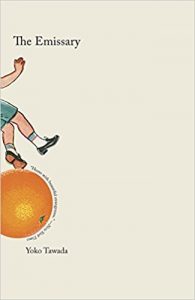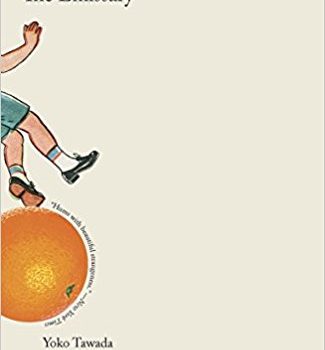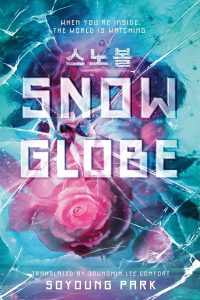Ian Mond Reviews The Emissary by Yoko Tawada
 The Emissary, Yoko Tawada (New Directions 978-0811227629, $14.95, 138pp, tp) April 2018. As The Last Children of Tokyo, Yoko Tawada (Portobello Books 978-1846276705, £9.99 144pp, tp) June 2018.
The Emissary, Yoko Tawada (New Directions 978-0811227629, $14.95, 138pp, tp) April 2018. As The Last Children of Tokyo, Yoko Tawada (Portobello Books 978-1846276705, £9.99 144pp, tp) June 2018.
The unsettling premise of Yoko Tawada’s short novel The Last Children of Tokyo (published as The Emissary in the US), translated by Margaret Mitsutani, is that the adults of Japan are living longer while the children are dying before they reach maturity. Yoshiro, for example, is over hundred years old, spry and healthy, renting a dog every morning for his half-hour run along the riverbanks of Tokyo. Contrast this to his great-grandson, Mumei, who is incapable of ingesting calcium and therefore has fragile bones that are prone to breaking and baby teeth that “drop out one after another like pomegranate pulp.”
Tawada never explains the cause of this perverse reversal of the ageing process. What her characters do reveal is that Japan, like the rest of the world, is suffering from a series of ecological disasters. Tokyo has become so toxic that “twenty-three wards, including prime locations, were designated an ‘exposure to multiple health hazards from prolonged habitation’ area.” The weather is also unpredictable, with long droughts punctuated by tropical storms.
In response, the Japanese government isolates the country from the rest of the world, going so far as to ban the use of all foreign words like “overalls” and “jogging.” While there’s a dystopian flavour to the Government’s criminalisation of language, Tawada also injects a measure of satire, such as the introduction, and tweaking of, countless public holidays. I particularly liked the elimination of “National Founding Day” because “a splendid country like Japan could not possibly have been founded in a single day,” and the establishment of “‘Pillow Day,’ to encourage couples to have sex, which was almost unheard of these days.”
At the heart of The Last Children of Tokyo is the relationship between Yoshiro and Mumei. Throughout the novel, we learn that everyone in Yoshiro’s life has left him. His wife went off to the mountains to set up an institution for runaway children; his daughter “abandoned” Tokyo the moment she turned eighteen, and Yoshiro’s grandson, who refuses to acknowledge Mumei as his son, was institutionalised for a “serious addiction.” With those failures haunting Yoshiro, he sees Mumei as an opportunity to redeem himself; not in a cynical way, but one born out of deep devotion and sadness. The two of them together, precocious Mumei barraging his great-grandfather with questions, anxious Yoshiro doing all he can to provide his great-grandson with a decent quality of life, remind us that life can be cruel but also boundless with love and affection.
This review and more like it in the October 2018 issue of Locus.
 While you are here, please take a moment to support Locus with a one-time or recurring donation. We rely on reader donations to keep the magazine and site going, and would like to keep the site paywall free, but WE NEED YOUR FINANCIAL SUPPORT to continue quality coverage of the science fiction and fantasy field.
While you are here, please take a moment to support Locus with a one-time or recurring donation. We rely on reader donations to keep the magazine and site going, and would like to keep the site paywall free, but WE NEED YOUR FINANCIAL SUPPORT to continue quality coverage of the science fiction and fantasy field.








